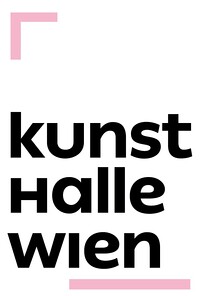November 10, 2022–May 1, 2023
Treitlstraße 2
1040 Vienna
Austria
With: Arts of the Working Class, AUSLÄNDER, bare minimum collective, Linda Bilda, Eva Egermann, Lamin Fofana, Adelita Husni-Bey, Problem Collective, Bassem Saad, and Vina Yun in collaboration with Tine Fetz, Moshtari Hilal, Sunanda Mesquita, and Patu
Curators: What, How & for Whom / WHW
Assistant Curator: Andrea Popelka
“In the meantime, midday comes around” is a quote taken from a seminal sociological study on unemployment from the 1930s called Marienthal: The Sociography of an Unemployed Community that was highly inspirational for this exhibition project. The researchers Marie Jahoda, Paul F. Lazarsfeld, and Hans Zeisel produced the book after several months of study of Marienthal, a district of the community Gramatneusiedl just outside Vienna, which was severely affected by the post-1929 worldwide economic crisis: almost all of its working population became unemployed.
The eponymous phrase is an entry in one of the timesheets filled in by unemployed men as part of the study. It describes the passing of time between rising in the morning and lunchtime: nothing has happened or changed; time is empty and without meaning. The women, on the other hand, remained busy with reproductive labor, as the study also showed.
But if the unemployed man’s sense of time in the 1930s illustrates the loss of a sense of life purpose when existence is not centered around work and its time structures, couldn’t it also illustrate a more contemporary diagnosis: a tedious regime of life fully subordinated to work, the ethics that evolve around it, and the demand for incessant productivity as well as the management and improvement of the self to better comply with these regimes? Isn’t the emptiness similar, albeit full of hustling and productivity, and the collapse of time equally soul-crushing? And how did it come about that we don’t work to live but rather live to work, and that we can scarcely imagine other forms of living?
Taking inspiration from the Marienthal Study, In the meantime, midday comes around revolves around these questions. It looks at the changes to the field of work in the last decades, made more visible by the Covid-19 pandemic, and considers the modalities of collective action and political imagination such global events carry to affect work. One of these long-term changes is what Aaron Benanav has analyzed as a stagnation and slowdown of economic productivity since the 1970s, which has not (yet) resulted in mass unemployment, but mass underemployment, with people pushed to accept work with miserable conditions and payment.
To approach this set of issues, the artworks in the exhibition oscillate between several thematic zones: crisis and social collapse, alongside both historical and contemporary forms of workers’ collective action and organization, are discussed by Lamin Fofana, Adelita Husni-Bey, Problem Collective, and Bassem Saad. Arts of the Working Class and bare minimum collective deal with other ways of being together, such as social bonds and practices that challenge the centrality of labor and reclaim time as the foundation of freedom, while Vina Yun in collaboration with Tine Fetz, Moshtari Hilal, Sunanda Mesquita, and Patu as well as Ausländer consider labor migration and its prospective planetary character. Moreover, the exhibition also takes a look at the specific conditions of artistic work and praxis—through the presentation of works by the late Linda Bilda, and Eva Egermann’s take on them.
When In the meantime, midday comes around touches on the world of work, it is from the perspective that our time shouldn’t be structured by work and related ideas of progress and growth. Rather, it should follow the flows of other rhythms and activities that are neither useful nor useless, and that we need to imagine, invent, and fight for collectively—a concern that will also be reflected in the extensive public program accompanying the exhibition.
Stay connected: please check our website for regular updates on our program.
Press contact: Katharina Schniebs / T +43 1 521 89 221 / presse [at] kunsthallewien.at


